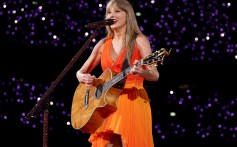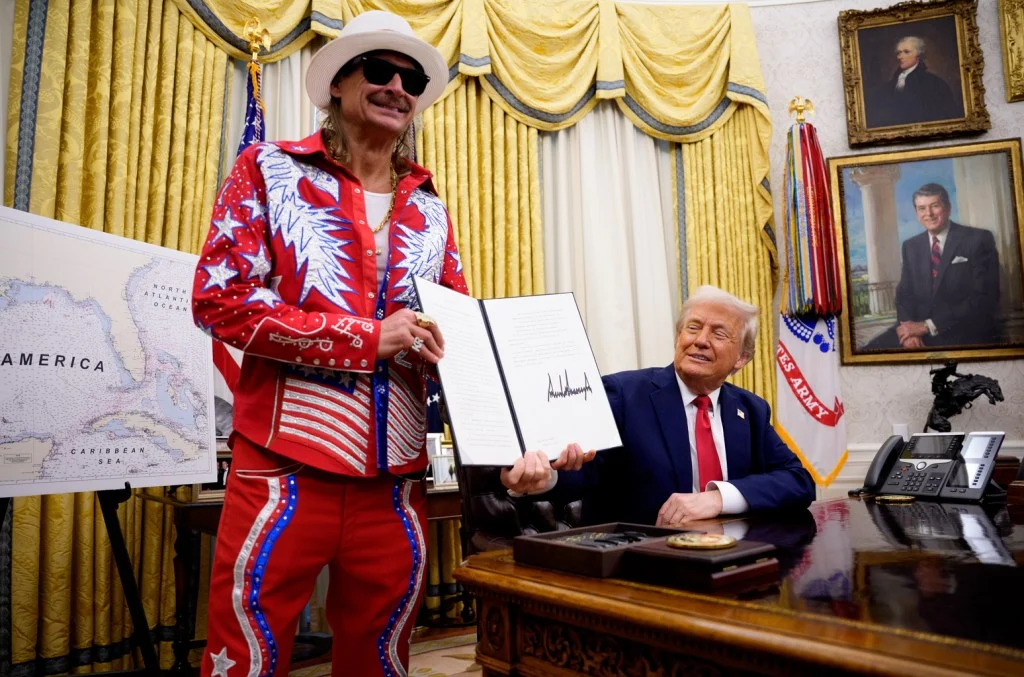ticker scalpers
Trending on Billboard
Key Investment Group (KIG) is asking a federal judge to throw out a recently filed Federal Trade Commission (FTC) lawsuit against the ticket resale company over alleged violations of the Better Online Ticket Sales (BOTS) Act.
In August, the FTC filed suit against KIG, alleging the company violated the BOTS Act when it purchased thousands of Taylor Swift tickets for her 2023-2024 Eras Tour and resold them for more than $1 million in profit. The lawsuit was filed days before a similar complaint was filed against Ticketmaster for allegedly refusing to enforce its own rules against scalpers and allowing unrestricted resale on its platform. Since then, Ticketmaster has made changes to its resale policies and, like KIG, has argued that the FTC is misapplying the BOTS Act.
Related
The FTC sued KIG in August, alleging the Colorado-based ticket resale operation used networks of accounts, IP masking, SIM boxes and other technical tools to evade Ticketmaster’s ticket-purchasing limits and acquire hundreds of high-demand tickets for resale. The agency claims these tactics “circumvented” the ticketing giant’s security controls in violation of the BOTS Act.
KIG is the first of the two firms to file a motion to dismiss. In a sweeping 36-page missive filed on Nov. 24, KIG attorney Bezalel A. Stern with law firm Manatt, Phelps and Phillips argues that the FTC’s complaint attempts to regulate long-established broker practices — like using multiple IP addresses to buy tickets or operating dozens of Ticketmaster accounts — that do not involve bots.
“KIG does not use bots. KIG does not circumvent any security measure,” the company tells the court, arguing the FTC is attempting to impose an unprecedented interpretation of the law that contradicts the law’s legislative history and the FTC’s own prior guidance.
Related
Stern stresses that the BOTS Act was explicitly drafted to stop “malicious computer code” that lets bot operators overwhelm ticketing websites and jump ahead of human buyers. KIG argues that since it employs human buyers — not automated scripts — the law does not apply. “Without the use of bots, there can be no BOTS Act violation,” KIG claims in the filing.
KIG’s brief also turns the FTC’s own evidence against it. In its lawsuit, the FTC included Ticketmaster records showing the ticketing company tracked KIG’s accounts and purchasing practices — even those created under alternate names — and knowingly allowed them. In a 2024 Ticketmaster email cited by the FTC, a Ticketmaster representative tells KIG that purchases made across different accounts are “within guidelines” so long as each individual account respects the posted per-account ticket limit. KIG’s motion argues that email destroys the FTC’s theory of unlawful “circumvention,” because ticket brokers at KIG cannot “avoid,” “evade” or “deceive” Ticketmaster’s controls when Ticketmaster explicitly authorizes the behavior.
KIG also highlights a contradiction between the FTC’s case against it and the agency’s separate September lawsuit against Ticketmaster and Live Nation. In that parallel case, the FTC alleges the ticketing company “knowingly allows, and in fact encourages, brokers to use multiple Ticketmaster accounts.” KIG argues the FTC cannot simultaneously claim Ticketmaster encourages multi-account purchasing while accusing KIG of “circumventing” the very same rules.
Related
The filing emphasizes that the FTC never alleges that KIG purchased tickets “within seconds” or at speeds indicative of automated software — the hallmark of bot activity described in past enforcement cases. According to KIG, the FTC is trying to convert everyday reseller practices into federal violations simply because they involve scale.
The FTC’s cited evidence — including a bank audit, news reports and previous consent decrees involving actual bot operators — does not establish that KIG knew its conduct was illegal under the BOTS Act, KIG’s motion claims.
Elsewhere in the motion, KIG alleges that the case began with a politically charged push by the White House to crack down on scalping. The company notes that minutes after President Trump — joined by Kid Rock — signed a March 2025 executive order demanding aggressive enforcement of the BOTS Act, the FTC sent KIG a draft complaint threatening litigation unless the company admitted wrongdoing.
KIG says the agency is now “expanding the BOTS Act far beyond its written and intended scope,” and warns that if the FTC’s theory were adopted, “every person or company who purchases tickets using more than one account” could be accused of violating federal law.
U.S. District Judge George L. Russell III will now consider the motion and whether to dismiss the government’s case before discovery begins. If not, the FTC will proceed to try to prove that KIG’s coordinated multi-account strategy amounted to illegal bot-level activity.
The Department of Justice (DOJ) and the Federal Trade Commission (FTC) have launched an official inquiry into the event ticketing business at the urging of President Donald Trump, the agencies announced Wednesday (May 7).
As part of the inquiry, “the agencies invite members of the public to submit comments and information on harmful practices and on potential regulation or legislation to protect consumers in the industry,” according to a press release. Anyone “impacted by anticompetitive practices in the live concert and entertainment industry” will have 60 days to submit comments to Regulations.gov, with the comment period concluding on July 7.
After the comment period closes, the agencies state they will “use the information in their preparation of the report and recommendations directed by President Trump” in his Executive Order 14254, also known as Combating Unfair Practices in the Live Entertainment Market. Signed by the president during a March 31 meeting in the Oval Office with musician Kid Rock in attendance, the order directed the Attorney General, along with the Secretary of the Treasury and the chairman of the FTC, to submit a report identifying “recommendations for regulations or legislation necessary to protect consumers” in the industry, including by enforcing the Better Online Tickets Sales (BOTS) Act.
Trending on Billboard
Passed in 2016, the BOTS Act gives both the DOJ and the FTC broad power to crack down on scalpers who illegally use automated technology to skirt the restrictions placed on high-demand ticket sales and prevents scalpers from buying up the best seats to flip for profit. Yet since its passage in 2016, the BOTS Act has only been used once to prosecute scalpers who knowingly break the rules put in place to make ticket buying fairer and more equitable.
“Competitive live entertainment markets should deliver value to artists and fans alike,” said Assistant Attorney General Abigail Slater of the DOJ’s Antitrust Division in a statement. “We will continue to closely examine this market and look for opportunities where vigorous enforcement of the antitrust laws can lead to increased competition that makes tickets more affordable for fans while offering fairer compensation for artists.”
Added FTC Chairman Andrew N. Ferguson, “Many Americans feel like they are being priced out of live entertainment by scalpers, bots, and other unfair and deceptive practices. Now their voices are being heard. President Trump has sent a clear message that bad actors who exploit fans and distort the marketplace will not be tolerated. The FTC is proud to help deliver on that promise and restore fair and competitive markets that benefit ordinary Americans.”
The inquiry comes as several ticketing bills work their way through Congress, most notably the TICKET ACT, which passed the House of Representatives on April 29 and also includes language calling for the enforcement of BOTS Act.
“Illegal bot use runs rampant in the ticketing industry because the FTC has only brought one enforcement action since the use of bots was banned in 2016,” read a statement from Stephen Parker, executive director of National Independent Venue Association (NIVA), shortly after the April 29 passage of the TICKET ACT in the House. He added, “We hope Congress does not miss the opportunity to ensure these laws are actually enforced in the future.”
The return of two highly popular dance artists has created new headaches for promoters dealing with increased public outcry over ticket scalping. Skrillex’s first show in nine years at the iconic Red Rocks Amphitheatre in Morrison, Colorado, and Pretty Lights’ comeback tour after a five-year absence have created supply and demand issues not often seen in the amphitheater and club space. That’s meant new challenges with how to deal with resellers buying tickets en masse and posting them online for profit.
Earlier this week, AEG Presents announced plans to reclaim tickets purchased by scalpers for a sold-out April 29 show by Skrillex at Red Rocks and resell them to fans through the Fair AXS ticketing platform, AEG’s own fan verification. Fair AXS requires fans to register in advance for high demand tickets, and like Ticketmaster’s Verified Fan platform, is designed to weed out scalpers.
The company is now weighing whether a similar plan to claw back tickets for the upcoming, sold-out Pretty Lights tour that kicks off Aug. 6 at the Mission Ballroom in Denver and sell those to fans through Fair AXS.
With the Skrillex concert, says AEG Presents co-president and senior talent buyer Don Strausberg, when the company scraped the sales data, it found instances of buyers who bought multiple tickets, exceeding the four-ticket limit on purchases and violated the terms of service for AEG-owned ticketing system AXS tickets. Those ticket purchases were then canceled, refunded to the originally buyer and put back on sale through the Fair AXS platform, a registration-based identity-verification system that helps concert promoters determine the likelihood that a ticket purchaser is a legitimate fan and not a ticket broker. (This verification system was recently utilized by Zach Bryan for his 2023 tour and requires fans to register in advance and provide their credit card information.) Strausberg says AEG is now considering whether to do the same for the Peaking Lights tour.
Strausberg didn’t identify how many Skrillex tickets were pulled back and sold through Fair AXS, but noted that demand for the April 29 show far exceeded supply at the world-famous 9,545-capacity venue.
“It’s time consuming,” to comb through all of the sales, and requires additional steps by both AEG and fans to register in advance for Fair AXS and to verify the accounts, Strausberg says, “but lately more people are asking for this.” Trying to identify individuals who violated AXS’s terms or service is “something we do without fail on nearly every large concert” says Strausberg, although the scale of unauthorized activity happening with the Skrillex show was larger than normal.
Scalping exists at every level of the concert business, but it’s much rarer to see high volume ticket scalping at smaller capacity venues like those on the Pretty Lights tour, where the artist is playing 3,500-size rooms. AXS ticketed 18 of the 24 shows on the Pretty Lights tour, totaling about 60,000 tickets total.
Lately, ticketing companies like Ticketmaster and AXS have become more effective at reducing the number of tickets that end up on the secondary market. That’s pushed some brokers into smaller capacity events, says a secondary market analyst who spoke on the condition of anonymity. “There’s much less opportunity at the club and theater level,” they add, where the majority of shows don’t sell completely sell out.
-
Pages

 State Champ Radio
State Champ Radio 



